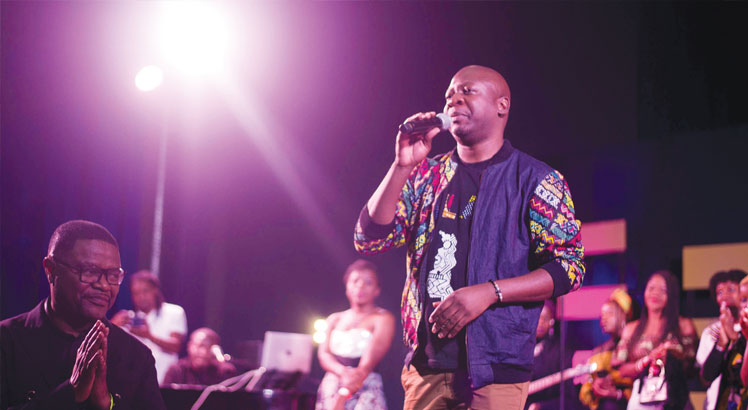Social media in art
In recent years, the country’s urban music industry has been riding on a thrilling online tide, especially for artists commanding the audience at the moment and even those that are up-and-coming.
The new normal is pulling the creative industry to the existing social media platforms where talent is by far gaining quick recognition.

Meanwhile, entertainers with a zeal to seize the opportunity have started reaping the fruits. This is in contrast to the past when musicians needed a lot of talent, too much of a name in the industry, a set of personal connections and the publicity push of music by a promoter called OG Issa, just to yield from their own creativity.
Renowned musician Lucius Banda cannot not help it, but weigh in on the transformation: “It can only make sense that everything is revolving around social media.
“In our time, we started with cassettes, it was all analogue, but all that is gone and now everything is in the phones, laptops.
“So, you can understand the scramble for identification with all these mediums. Urban musicians know their customers who are mostly youthful and own smartphones.”
Promotion is a lot easier to cope with; if you are a musician—or at least handle one. You should be able to create a fan page, say on Facebook, brand it woo an audience for yourself and manage it through a tight frequency of captivating status updates, then surely, you are good to go.

Music and events promoter Tonderai Banda believes social media is a contemporary opportunity that is working well for urban music.
He says: “Artists are using social media to get exposed. We know our market is very small, but then I’d say it’s getting bigger.”
For artists who already built a name in the traditional media like radio, print and television, persuading fans to like their page should be effortless. Maintaining and increasing that fan base is, but the problem.
Critics say the tussle among artists for an audience is to some extent lowering the quality of music as musicians are in a haste to release singles, albums and even videos. They believe the push to keep audiences alive has left little room for maturely composed and produced music that can stand the test of time.

Tonderai said: “In the arts industry that is very unhealthy. When you start competing, you’re forced to do things hurriedly. In my view, works of art are supposed to be done slowly.
“You can compose a song for three years, we’ve done that. You write a verse this year, another verse next year, the fourth year you release the song. Those are songs that stay. I don’t think artists should be competing.”
The opportunity that social media resents has seen the establishment of new online entertainment pages. One of such with a huge following is the Mikozi Network Facebook page which in the past few weeks drew user attention by pitting two of the country’s sucessful musicians against each other.
In a comment, veteran the musician denounced comparative criticism in the industry. Mikozi founder Bright Chiligo, however, maintains that rivalry is healthy for the industry.
“Competition will always be there. In the creative arts, the only way people can work hard is if we talk about competition, but if we remain silent, no one will know if they are doing good work or not and even the artists are benefitting from it,” he said.
Malawi’s music past and present is very much apart and the difference is observable in the styles.
The present is a diverse industry where players want to religiously identify with particular music genres. Artists are working hard to emulate contemporary South African house music, or American hip-hop, for example.
Tonderai is of the view that the industry is taking baby steps which need support from the countrymen: “Even in the US, Europe and South Africa, there are so many of these young rappers releasing songs every day, but it’s only the big guys that we know.
“For example, 50 Cent had too many mix tapes that he released in his time. Some go in the studio for the fun of it, but for those with a future, you’re able to see that from far, that they are not just doing it for attention.”
But with all the push to maintain genre identity amid social media marketing, there still is a dwarfed or a fleeting kind of feedback, especially from the international audience. And in all this, people still get to see more promotional music but less talent.




